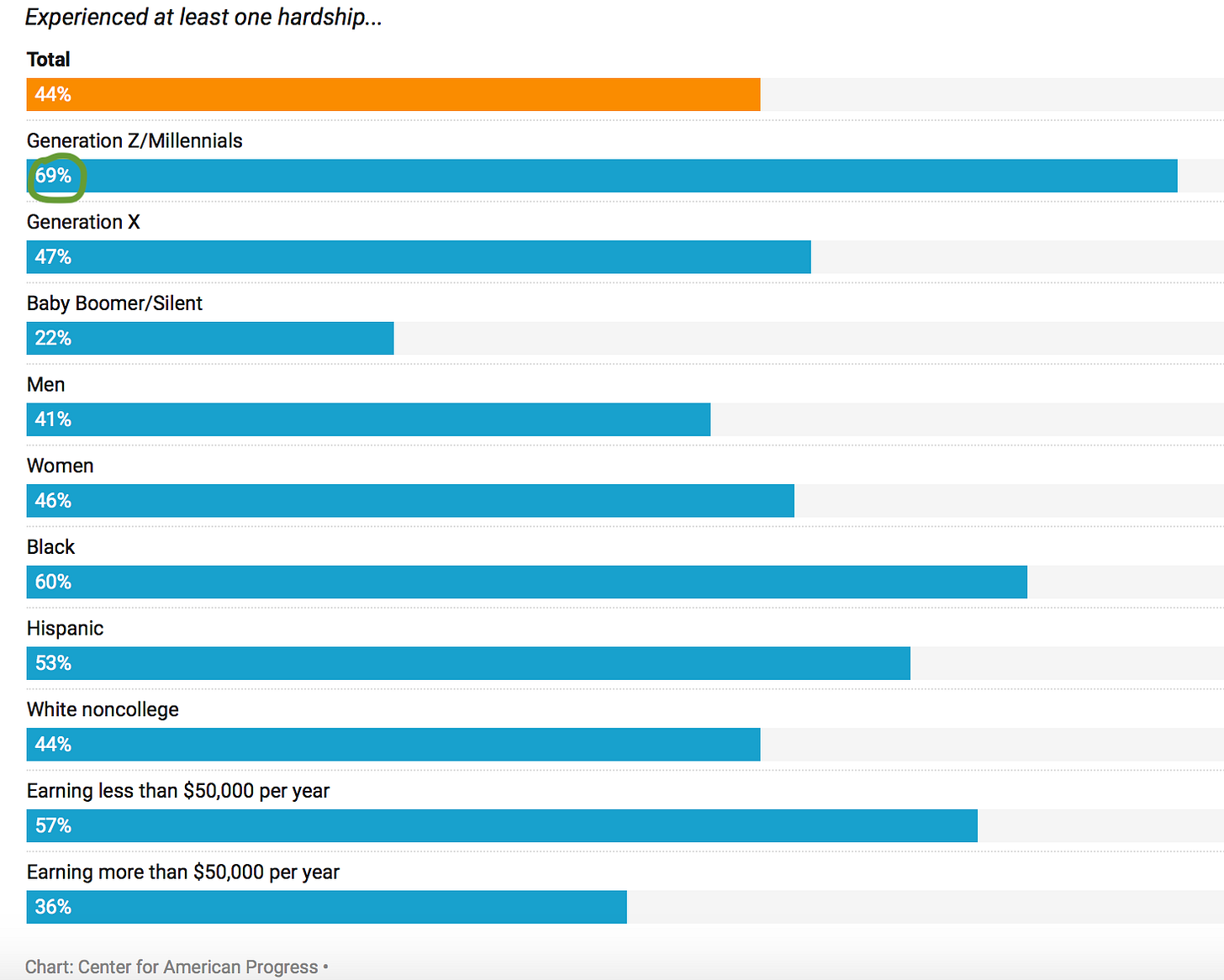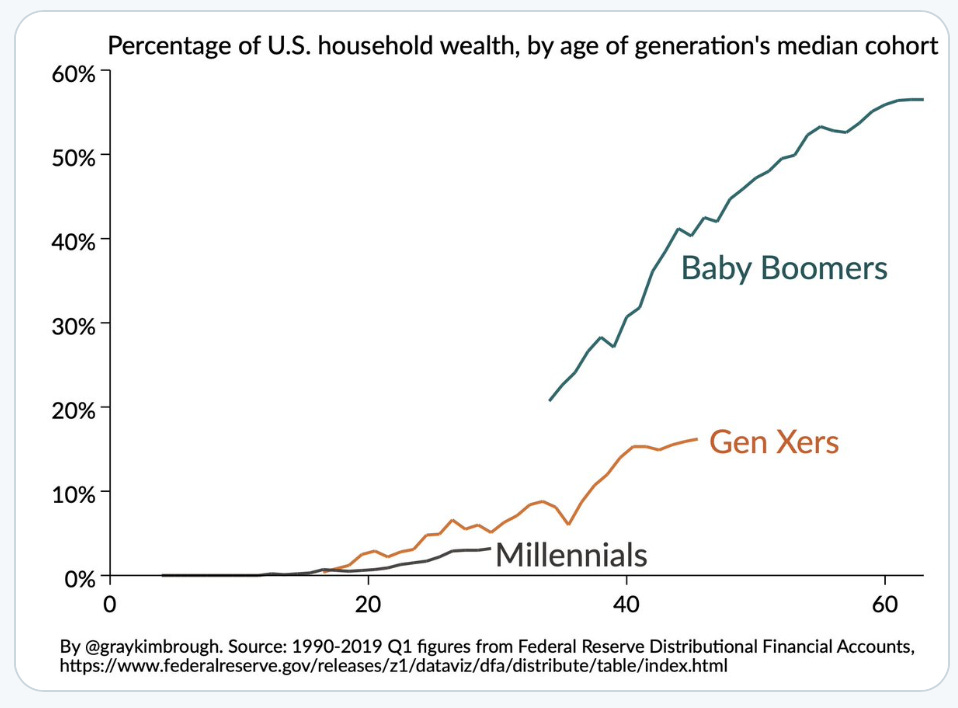A Fair Deal for America’s Youth
Young people get a lot of grief from oldsters about their often annoying, extremely online, identity-obsessed politics. Some of this may be warranted, of course. But older people do more than their fair share of idiotic online politics as well, so there’s a bit of “don’t throw stones from glass houses” hypocrisy going on with these criticisms.
More importantly, as with many things related to contemporary politics, these social critiques of youth culture tend to overstate behavior by some bad actors and make a convenient excuse for political leaders to overlook the concerns of younger voters and the real economic challenges facing a broad segment of younger people today.
Case in point: generational experiences of COVID and the economic crisis.
Although older people clearly face greater risks from the coronavirus itself, younger people are bearing the brunt of the negative economic fallout. Looking below at some recent polling on poverty and the pandemic I ran this past February, you’ll see that more than 4 in 10 Americans overall report having experienced at least one economic hardship in the past year, such as a job loss or difficulty affording housing, medical care, or food.
The generational divides on this measure are stark, however. Nearly 70 percent of Generation Z/Millennial voters report at least one of these hardships in the past year, compared to less than half of those in Generation X and around one-fifth of Baby Boomer/Silent Generation voters. Although experiences of economic hardship differ based on gender, race, and income, nothing matches the generational divide in terms of reported experience of economic problems related to the pandemic.
Notably, half of all Generation Z/Millennial voters say they have experienced 3 or more of these hardships in the past year, with one quarter reporting trouble in all 5 areas. Employment worries clearly occupy the top tier of concerns for younger people: 56 percent of younger people say they had trouble finding or keeping a job with good wages in the past year. The spillover effect of lost work and wages on household costs is clear as well, as nearly half of Generation Z/Millennial voters report falling behind on utilities or having trouble affording food in the past year.
The disparate impact of the coronavirus economic crisis on young people comes on top of lagging economic opportunities, particularly for those in the Millennial generation, stemming from the financial crisis of 2007-2008 and sharply rising costs for important big ticket items like education and housing. As the Wall Street Journal reported this summer, “For this cohort, already indebted and a step behind on the career ladder, this second pummeling could keep them from accruing the wealth of older generations.”
So, what should be done about this?
Rather than debate specific policies right away, we first need a vision for what generational advancement requires. Although the needs of the youngest people in America differ from the existing challenges of the oldest Millennial workers today, there are a set of commitments we could make that would bolster the position of young people from birth through early adulthood.
It’s time for citizens to create a “Fair Deal for America’s Youth” program centered on a few core economic goals:
Ensure that no child in America grows up in poverty.
Allow every child in America to attend a top-notch traditional public school or charter school—regardless of their zip code or their parents’ income.
Put college in reach for more young people; make public colleges and universities nearly cost free for everyone; and reduce student loan burdens and offer loan forgiveness programs tied to national service.
For those not interested in college, bulk up high-skill apprenticeships and paid training programs in high-wage manufacturing or service industries.
Help the next generation of workers better afford to work and raise a family by fully extending health care, child care assistance, and affordable housing options to all young people.
Make it easier for part-time employees, infrequent or contract workers, and those whose careers have been disrupted to save money for retirement and build wealth.
Since older people are now sitting on top of the largest pile of wealth in U.S. history, they have both a self-interest and moral duty to help struggling younger people build a decent life and get a stronger foothold on economic independence. These are our children or grandchildren after all (I’m a Gen Xer with two kids in college myself), and they are the workers of the future who will grow America’s economy and pay taxes to help finance secure retirements and health care for older generations. We need them to succeed.
Older people don’t need to buy into young people’s politics and social norms to back a better framework for their economic well-being and advancement. Many younger people themselves don’t like recent social media and political trends. These trends are beside the point anyway given the larger economic context.
By supporting a “Fair Deal for America’s Youth” agenda, and funding it through higher taxes and cross-generational investments, older Americans could leave an important legacy for America’s young people and take the high road in politics by looking past cultural divides to do what is right for the country’s future.






